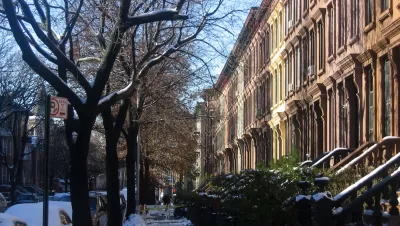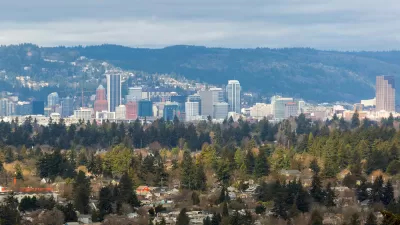Plans that focus on giving funds to renters and home buyers won't make housing affordable, and can inflate housing prices and rents.

In commentary for City Observatory, Joe Cortright argues that to address rising housing costs, cities need to reconsider supply and demand. "Rent and home purchase subsidies may help out a few individuals, but only at the cost of making the affordability problem worse for everyone else," Cortright says.
But that hasn't stopped policy makers from trying. "In Vancouver, the British Columbia provincial government has announced that it will match the down-payment that first-time homebuyers make to purchase a new residence," Cortright points out. Meanwhile in Portland, "… local landlords group has proposed that the state instead enact a rental subsidy, roughly modeled on the federal Section 8 voucher program. The proposal is that the state would allocate something on the order of about $20 million per year to provide rent subsidies of around $100 per month to as many as 20,000 low and moderate income households."
These demand-side solutions will benefit some, but the supply problem is likely to persist. Progressive programs to aid low income renters will help those who are organized and informed enough to access them. But, others will be negatively effected by more money being pumped into the system. In cities like Vancouver and Portland, which are already popular, stoking demand may be counterproductive.
FULL STORY: How not to fix housing affordability

Alabama: Trump Terminates Settlements for Black Communities Harmed By Raw Sewage
Trump deemed the landmark civil rights agreement “illegal DEI and environmental justice policy.”

Planetizen Federal Action Tracker
A weekly monitor of how Trump’s orders and actions are impacting planners and planning in America.

The 120 Year Old Tiny Home Villages That Sheltered San Francisco’s Earthquake Refugees
More than a century ago, San Francisco mobilized to house thousands of residents displaced by the 1906 earthquake. Could their strategy offer a model for the present?

In Both Crashes and Crime, Public Transportation is Far Safer than Driving
Contrary to popular assumptions, public transportation has far lower crash and crime rates than automobile travel. For safer communities, improve and encourage transit travel.

Report: Zoning Reforms Should Complement Nashville’s Ambitious Transit Plan
Without reform, restrictive zoning codes will limit the impact of the city’s planned transit expansion and could exclude some of the residents who depend on transit the most.

Judge Orders Release of Frozen IRA, IIJA Funding
The decision is a victory for environmental groups who charged that freezing funds for critical infrastructure and disaster response programs caused “real and irreparable harm” to communities.
Urban Design for Planners 1: Software Tools
This six-course series explores essential urban design concepts using open source software and equips planners with the tools they need to participate fully in the urban design process.
Planning for Universal Design
Learn the tools for implementing Universal Design in planning regulations.
Clanton & Associates, Inc.
Jessamine County Fiscal Court
Institute for Housing and Urban Development Studies (IHS)
City of Grandview
Harvard GSD Executive Education
Toledo-Lucas County Plan Commissions
Salt Lake City
NYU Wagner Graduate School of Public Service





























